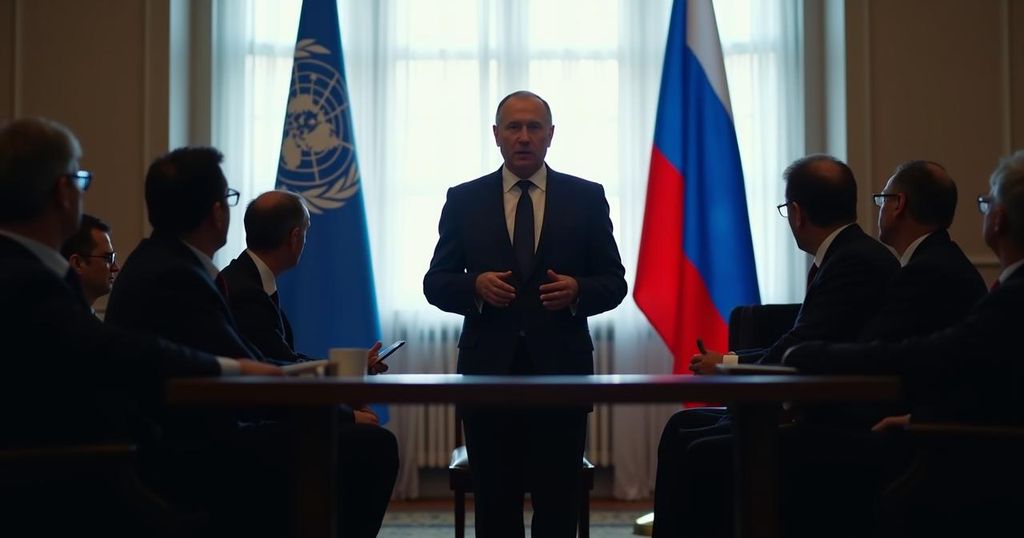Russian Foreign Minister Sergey Lavrov has confirmed Russia’s support for India and Brazil’s pursuits for permanent UNSC seats, advocating for an expanded representation of the Global South. He criticized Western nations for their sanctions, describing the dollar as a weapon. Lavrov also dismissed Ukrainian President Zelenskyy’s peace proposal as futile, urging a focus on the real causes of the conflict.
Russian Foreign Minister Sergey Lavrov has reiterated Russia’s endorsement of India and Brazil’s aspirations for a permanent seat on the United Nations Security Council (UNSC). In his address delivered at the 79th United Nations General Assembly, Lavrov emphasized that establishing a “fairer world order” necessitates a broader representation of the Global South within the UNSC. He articulated, “We support our position in favour of the candidacies of Brazil and India, while at the same time taking a positive decision on the well-known initiatives of the African Union. However, of course, we cannot even talk about any additional seats for Western countries, who are already excessively over-represented within the Security Council.” India has persistently sought a permanent seat in the UNSC to better advocate for the interests of developing nations, gaining increased international backing for its bid. Bhutan’s Prime Minister Tshering Tobgay recently expressed support for India’s proposal. Further, Lavrov criticized Western nations for undermining globalization principles, citing the imposition of sanctions on numerous countries and the dollar’s utilization as a geopolitical weapon. He underscored, “The countries of the West have unleashed a veritable sanctions war against a good half, if not the majority of the states in the world and the dollar… has been worsely transformed as a weapon.” In a critical assessment of Ukrainian President Volodymyr Zelenskyy’s peace initiative, Lavrov termed it “hopeless,” urging Russian allies to consider the fundamental causes of the ongoing conflict. He appreciated the sincere mediation efforts of partners, contrasting them with Zelenskyy’s proposals, which he deems futile. This statement from Lavrov reflects Russia’s strategic position regarding representation in global governance and its response to Western geopolitical actions, particularly in relation to the Ukrainian conflict.
The commentary by Russian Foreign Minister Sergey Lavrov highlights a significant geopolitical issue regarding the representation of developing nations in global institutions, specifically the UNSC. The demand for permanent seats by countries like India and Brazil is not only a reflection of their growing influence in international affairs but also a push towards a more equitable representation that includes voices from the Global South. Historical context is essential here, as several nations have long believed that the UNSC has remained dominated by Western powers, leading to calls for comprehensive reform that would address the evolving political landscape and allow greater representation of emerging economies.
The statements made by Minister Lavrov indicate a robust endorsement of India and Brazil’s candidacies for permanent seats on the UNSC, indicating a shift towards more inclusive international governance. The discourse surrounding Western dominance and the need for a fairer world order signals a growing acknowledgment of the Global South’s role in the contemporary geopolitical landscape. Furthermore, Lavrov’s criticism of the West’s geopolitical strategies and the critique of Zelenskyy’s peace efforts underscores the tumultuous nature of current international relations, particularly concerning the ongoing conflict in Ukraine.
Original Source: www.business-standard.com






